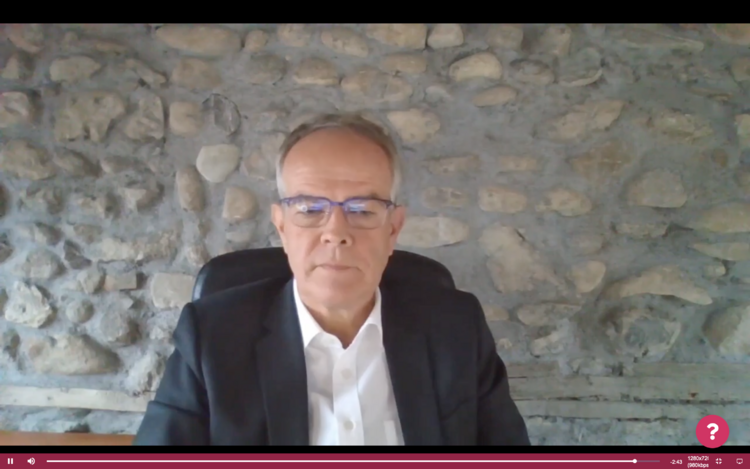Last week, October 28, the World Health Organization (WHO) through the Road Safety Collaboration launched the Global Plan in an online event. The session discussed the Global Plan for Road Safety, what it can be used for, how it can be used, and how it will aid in the achievement of road safety targets listed in the Decade of Action for Road Safety.
The Global Plan
The Global Plan describes what is needed to achieve the road safety targets in the Decade of Action. It also calls on governments, partners, and other stakeholders to implement an integrated Safe Systems Approach in their local and global plans and projects.
The launch featured global road safety leaders from different sectors including WHO Director-General Tedros Adhanom Ghebreyesus, President of the UN General Assembly Abdulla Shahid, Executive Secretary of the UN Economic Commission for Africa Vera Songwe, UN Secretary General’s Special Envoy for Road Safety Jean Todt, and more.

During the launch, the different speakers emphasized the importance of the Plan in halving the number of road-related deaths and injuries by the year 2030. In his address, WHO Director-General Tedros Adhanom Ghebreyesus talked about how the Plan promotes safe walking, cycling, and mobility. He challenged all stakeholders to do their roles to implement the Global Plan.
“[The Plan] calls on governments to provide the financial and human resources needed to achieve a 50% reduction In road traffic deaths and serious injuries by 2030. It also calls on young people, academia, civil society, and the private sector to do their part in making mobility safe. The implementation of the global plan will be the focus of discussions during the 2022 high-level meeting on improving global road safety” – Tedros Adhanom Ghebreyesus
Echoing his sentiments, President of the UN General Assembly Abdulla Shahid encouraged governments and decision-makers to use the global plan to strengthen their road safety policies saying that it will help make roads that are healthier, greener, and more livable.

“This Global Plan will guide our efforts to make our roads safer in the coming years – saving lives and preventing serious injuries… It is up to us to deliver” – Abdulla Shahid.
Meanwhile, Executive Secretary of the UN Economic Commission for Africa Vera Songwe credits the Global Plan in addressing different road safety issues in low-and-middle-income countries, presenting strategies on how these issues could be approached.
She shares her commitment to support member states in the implementation of the Plan.
Young people and the Global Plan
During the launch of the Plan, Global Youth Coalition Youth Leadership Board Member, Deepanshu Gupta, joins global road safety leaders to represent youth and the Coalition.

Other speakers during the launch showed support to the identification of young people as key stakeholders in efforts to achieve the road safety targets by the end of the Decade. In his speech, UN Secretary General’s Special Envoy for Road Safety Jean Todt, shares his optimism with the Plan and the possibility of achieving the targets in the new Decade.
“The Global Plan offers the framework of actions needed for countries and civil societies to reach our target to halve road deaths and injuries by 2030. The Global Plan advocates for making the entire transport system safe, affordable, sustainable, and accessible to all”

During his intervention, Deepanshu highlights how the current generation of young people is the largest in the world and emphasizes how youth are included in the Global Plan.
“For the first time, the Global Plan has identified youth as crucial stakeholders. I sincerely hope that all stakeholders associated with the cause should draw inspiration from the plan and involve youth meaningfully to save lives” -Deepanshu Gupta
Deepanshu emphasized how young people, through the Global Youth Coalition, are taking action to address road safety issues at both local and global levels. He explained how members of the Coalition have come together for the mission of saving lives.
In the session, Deepanshu shares his expectations for intergenerational collaborations where decision-makers will work hand-in-hand with young people in all stages of planning and decision making – where there is no tokenism and where youth are given the opportunity for equal participation.

Global Ambassador of Child Health Initiative Zoleka Mandela closed the session by calling out world leaders for their inaction to address the road safety crisis. “When our leaders know exactly what the solutions are, and those solutions are completely within their grasp, their lack of action is nothing short of disgraceful,” she said.
The Global Plan challenges all stakeholders to play their role in halving the number of road-related deaths and injuries by the year 2030. If you missed the launch, you can watch it again!

